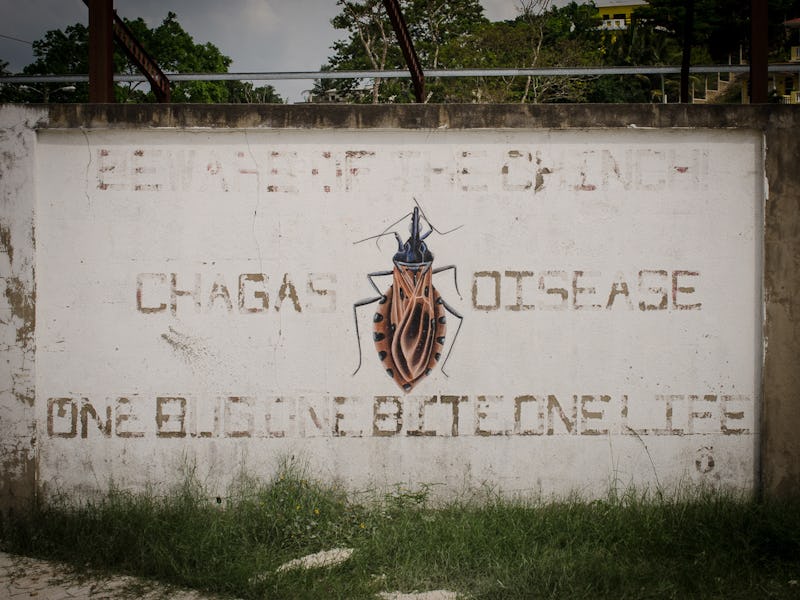'Kissing Bugs' Could Spread Chagas Disease in the Southern United States
Infection starts when their parasite-containing feces is rubbed into wounds on the face and lips.

“Kissing bugs” have been discovered in Georgia and Texas, raising fears about the potential spread of Chagas disease, which they’re known to carry. The triatomines, as they’re also known, are nicknamed for their penchant for sucking blood from lips and faces and taking disease-carrying dumps on the wounds. When people scratch the bite, they rub the contaminated poop further in.
"Kissing bugs" are commonly found in the Southern United States.
The disease itself is caused by a parasite, Trypanosoma cruzi, which lives in the bugs’ feces. Chagas symptoms include heart and stomach illnesses, which are potentially fatal. Infected people experience relatively mild flu-like symptoms, like swelling at the bite mark and aches and fever, a few weeks or even months after the first kiss. In a minority of triatomine victims, those symptoms could lead to irregular heartbeats, an enlarged heart, bowel and digestion problems, and a higher risk of stroke.
There is good news: According to the CDC, even though kissing bugs drop parasitic mouth deuces all over the southern United States, not all of them carry the deadly disease, and the actual likelihood of contracting disease from a bite is, at least in the U.S., low. Fortunately, it can’t be spread through casual contact with an infected person.
Triatomines also occasionally bite mucous membranes like the eyes, causing localized infection.
Because it’s their insides that are potentially dangerous, you shouldn’t squash kissing bugs if you catch them trying to make a move. The CDC suggests sliding a bug into a container full of rubbing alcohol and taking it to a local university lab or health department to get checked out. But if you think you might be infected, make a beeline to your doctor and get a blood test. This kiss of death is no joke.